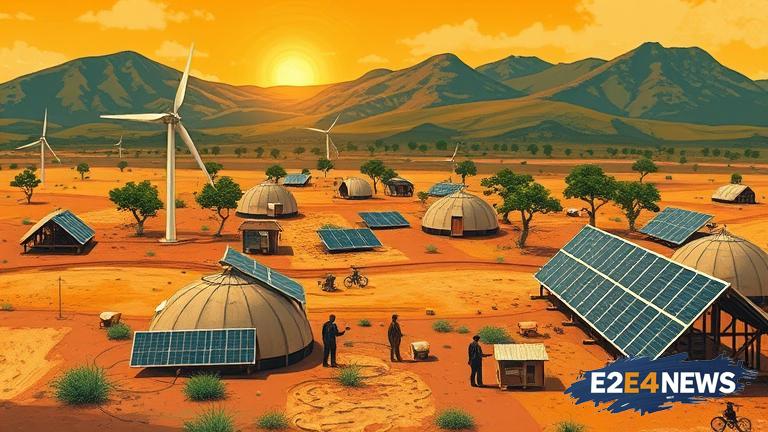The African continent is witnessing a significant shift towards renewable energy, driven by the need to address the pressing issues of energy access, energy security, and climate change. With many countries still struggling to provide electricity to their citizens, renewable energy has emerged as a viable solution. Solar and wind power are becoming increasingly popular, with many African nations investing heavily in these sectors. In South Africa, for example, the government has set ambitious targets to increase the share of renewable energy in the energy mix. The country has already made significant strides in this regard, with several large-scale solar and wind farms coming online in recent years. Similarly, in Morocco, the government has launched an initiative to generate 52% of the country’s electricity from renewable sources by 2030. Other countries, such as Egypt and Kenya, are also making significant investments in renewable energy. The growth of renewable energy in Africa is being driven by a combination of factors, including declining technology costs, improving energy efficiency, and increasing demand for clean energy. Additionally, many international organizations and donors are providing financial and technical support to African countries to help them transition to renewable energy. The African Development Bank, for example, has launched a $20 billion initiative to support the development of renewable energy in Africa. The International Renewable Energy Agency (IRENA) is also working closely with African countries to help them develop their renewable energy sectors. Despite the many benefits of renewable energy, there are still several challenges that need to be addressed. These include the high upfront costs of renewable energy technologies, the lack of infrastructure in many African countries, and the need for greater investment in energy storage and grid management. However, with the right policies and investments in place, renewable energy has the potential to transform the energy landscape in Africa. It can help to increase energy access, reduce energy poverty, and promote sustainable economic development. Furthermore, renewable energy can also help to mitigate climate change by reducing greenhouse gas emissions and promoting the use of clean energy. In addition to the environmental benefits, renewable energy can also create jobs and stimulate local economies. In fact, a recent study found that the renewable energy sector could support up to 24 million jobs globally by 2030. In Africa, the renewable energy sector is already creating thousands of jobs, from manufacturing and installation to operation and maintenance. As the demand for renewable energy continues to grow, it is likely that many more jobs will be created in the sector. Overall, the growth of renewable energy in Africa is a positive trend that has the potential to transform the energy landscape and promote sustainable development. With the right policies and investments in place, African countries can unlock the full potential of renewable energy and create a brighter future for their citizens.
